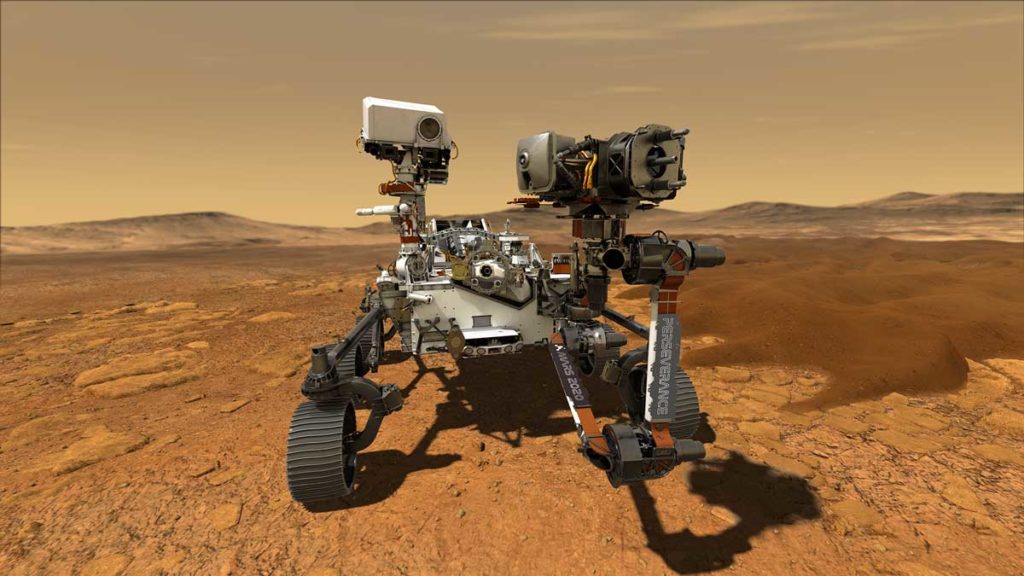
- A new book predicts artificial intelligence will soon replace astronauts.
- The authors posit that robots are cheaper, more reliable, and better suited to space travel.
- But with the human desire for exploration, AI is unlikely to replace astronauts fully.
AI will close the gap with human capabilities in the next few decades and surpass them in many domains. This will lead to a reduced need for astronauts, giving mankind a choice to “ride-along” as adventurers or stay at home on the couch watching robots boldly go where no man has gone before. This is the prediction of science writer Donald Goldsmith and astronomer Martin Rees in their new book The End of Astronauts [1]. However, while it’s likely that we’ll see an increase in AI space missions, humans’ obsessive desire for exploration means that we’re not likely to see the complete demise of astronauts.
The advent of the AI explorer
AI has come a long way since Alan Turing’s mid-1920s vision of “Intelligent Machinery,” and it’s improving exponentially. Just one decade ago, humans were beating computers at categorizing images [2]; Fast forward to the present day, and AI can analyze “…more images in an hour than a human expert could in a lifetime,” writes Goldsmith and Rees. In the context of planetary expeditions, AI now has the same ability as a human to recognize prominent geological features on Earth. However, that doesn’t necessarily mean that skill is transferable to other celestial objects.
NASA’s Perseverance rover, which self-guided to a landing on Mars last year, cannot recognize Martian terrain and humans. This isn’t a shortcoming of AI itself but rather a lack of training data; we don’t exactly have a plethora of historical Martian images with which to train the AI. To combat the problem, a Zooniverse citizen science project is underway to better train neural networks to recognize Martian land features using images from the Mars mission [3]. The hope is that soon, NASA may be able to dispense with the human classification element entirely. “Further AI advances,” Goldsmith and Rees write, “will continue to tilt the balance favor robots.”
AI is more suited for space travel.
As well as AI’s masterful classification abilities, there’s another major benefit to sending robots into space instead of humans: we haven’t yet figured out a way for humans to safely travel in space. Goldsmith and Rees write that even a relatively short universal jaunt to the red planet and back will push an astronaut over the recommended radiation dose for a full career.
An even bigger problem is the cost of providing life support systems for months on end: sending a human to Mars is fifty times more costly than sending a robot. The authors write that the estimated cost for humans to land on Mars is $230 billion. Compare that to Perseverance’s $2.75 billion price tag, one-tenth of the proposed human mission.
The human desire for exploration isn’t going to disappear.
Despite the obvious benefits of sending robots into space, one factor ensures AI will never replace astronauts – the human desire for exploration. While self-guided robots are welcome in certain dangerous situations like diffusing bombs or exploring active volcanoes, the dangers of space travel are a well-known and accepted fact for astronauts, who have a 1 in 20 chance of dying during a mission [4]. There’s no shortage of people willing to accept that increased risk: 12,000 people applied for 10 NASA astronaut positions [5].
When it comes to taking risks, we’re a strange species, and exactly why we put our lives on the line is not fully understood. “Exploration—travel for the sake of discovery and adventure—is it seems a human compulsion, a human obsession even,” Stewart Weaver, mountain climber and professor of history at the University of Rochester, says [6]. He adds, citing paleontologist Maeve Leakey, “[Exploration] is a defining element of a distinctly human identity, and it will never rest at any frontier, whether terrestrial or extra-terrestrial.”
In addition to our obsessive-compulsive need for exploration, another compelling reason for putting our lives on the line is a search for transcendence – like the “overview effect” reported by astronauts in orbit as they look down on Earth [7]. That’s something you can’t get by watching a robot drill soil samples on your TV.
References
[1] Goldsmith, D. & Rees, M. (2022). The End of Astronauts. Harvard University Press.
[2] This Guy Beat Google’s Super-Smart AI—But It Wasn’t Easy
[4] Why astronaut Chris Hadfield isn’t afraid of death
[5] NASA Selects New Astronaut Recruits to Train for Future Missions
[6] Stewart Weaver Surveys Exploration of the Unknown Through the Ages
